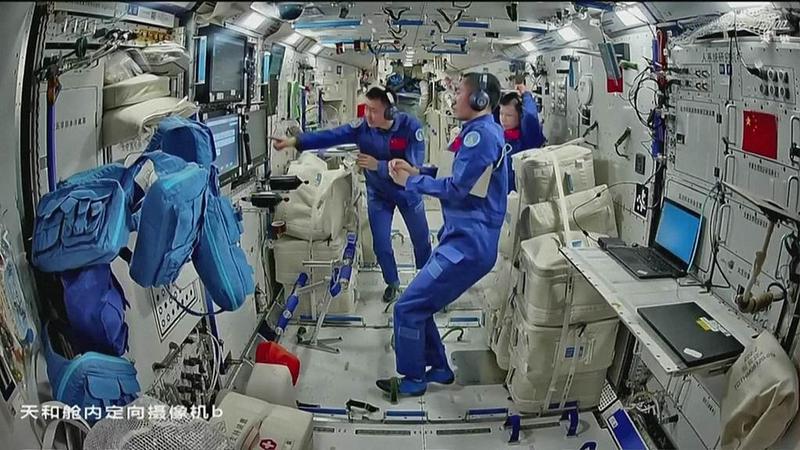China's Shenzhou-20 crew—commander Chen Dong and taikonauts Chen Zhongrui and Wang Jie—have spent over three months in orbit, driving forward a suite of space science experiments designed to benefit future missions and life on Earth.
In the Wentian laboratory module, Chen Dong and Chen Zhongrui installed a cutting-edge plant cultivation device. This marks the start of a new cycle of growing greens in microgravity, offering insights into sustainable food production for long-duration space travel.
Meanwhile, in the Tianhe core module, Wang Jie led cellular biology studies. By examining the effects of prolonged spaceflight on human physiology, researchers aim to tackle challenges like bone metabolism and cardiovascular decline—issues that resonate with health concerns on Earth.
The team is also collaborating with "Xiaohang", an intelligent flying robot that unlocks new possibilities for human-robot teamwork in confined, low-gravity environments. Their experiments in microgravity physical science include assembling and disassembling modular hardware, refining techniques for future off-world construction.
One standout piece of cargo from Tianzhou-9 is a gas-resistance exercise machine—1.7 meters tall, 1 meter wide, and weighing 130 kilograms. Installed in Wentian, it simulates Earth-like resistance for workouts like crunches, twists, and push-ups, helping counteract muscle atrophy and cardiovascular effects during extended missions.
As these experiments progress, the Shenzhou-20 mission is laying the foundation for a new era of space exploration—where plant labs, robotic partners, and smart fitness tools work together to keep astronauts healthy and prepare humanity for life beyond our planet.
Reference(s):
Shenzhou-20 crew continues progress in space science experiments
cgtn.com




